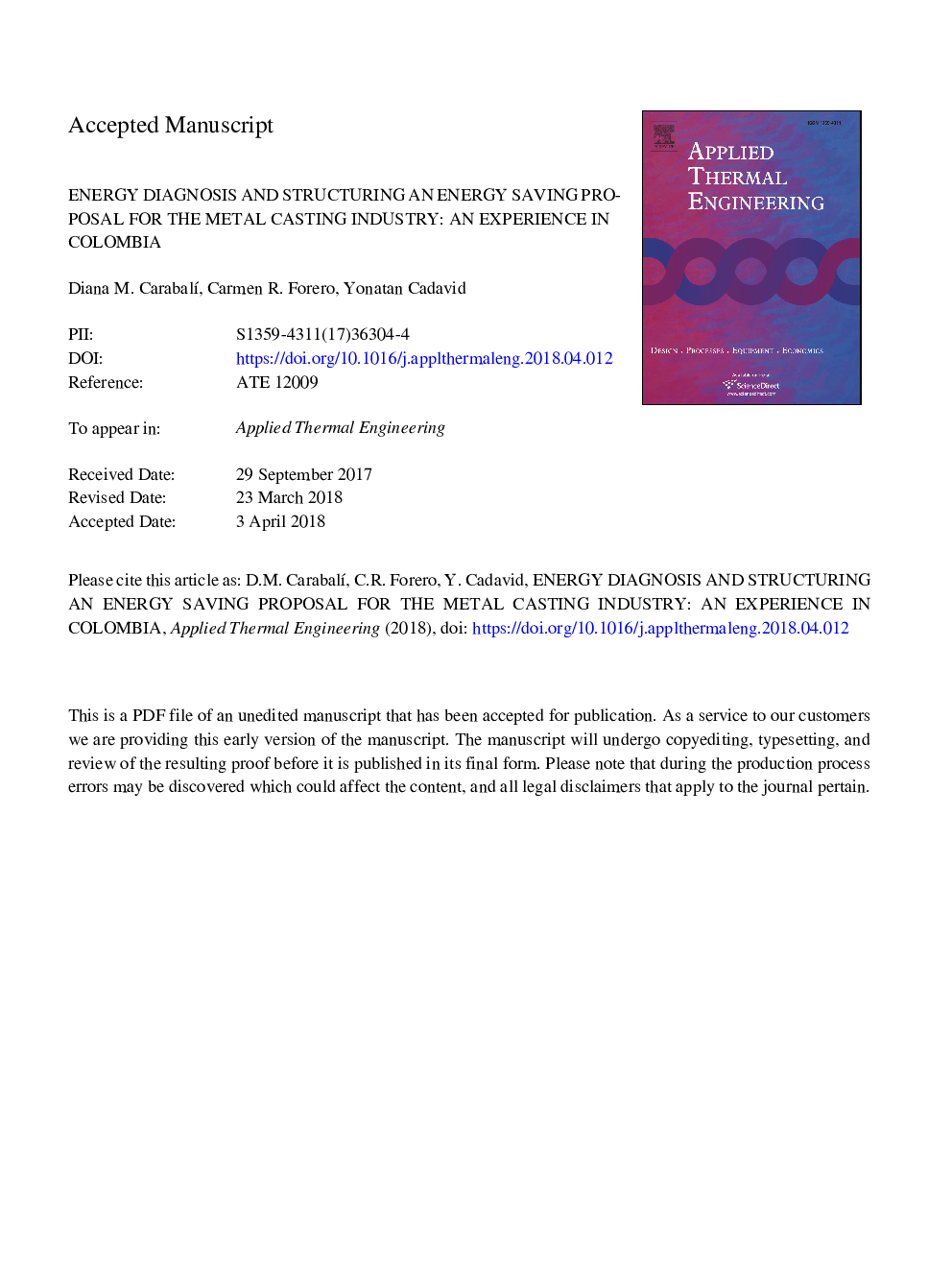| کد مقاله | کد نشریه | سال انتشار | مقاله انگلیسی | نسخه تمام متن |
|---|---|---|---|---|
| 7045508 | 1457092 | 2018 | 29 صفحه PDF | دانلود رایگان |
عنوان انگلیسی مقاله ISI
Energy diagnosis and structuring an energy saving proposal for the metal casting industry: An experience in Colombia
ترجمه فارسی عنوان
تشخیص انرژی و ایجاد یک پیشنهاد صرفه جویی در انرژی برای صنعت ریخته گری فلز: تجربه در کلمبیا
دانلود مقاله + سفارش ترجمه
دانلود مقاله ISI انگلیسی
رایگان برای ایرانیان
کلمات کلیدی
بهره وری انرژی، ریخته گری فلزات، انرژی حرارتی، از دست دادن انرژی، پیشنهادات صرفه جویی در انرژی،
موضوعات مرتبط
مهندسی و علوم پایه
مهندسی شیمی
جریان سیال و فرایندهای انتقال
چکیده انگلیسی
In the Valle del Cauca Department, there are 24 establishments engaged in the casting of metals, i.e. 17.3% of Colombia's total metal casting industry. The project involved five metal casting businesses from the department of Valle del Cauca and Cauca, in which the energy consumption, along with the respective loss of energy in the metal casting process were evaluated. The results of the energy diagnosis show that energy losses through the fuel gases are the main source of energy loss in the aluminium casting systems, the heating of steel billets and the heat treatments, representing a total loss of 54.2%. One of the causes is the average temperature of the flue gas output in different industrial processes, 654.8â¯Â°C, along with the high percentages of excess air in the combustion. The proposals intend to reduce these sources of energy loss through the use of available measures or technologies that could make the industrial processes more efficient and competitive. These include: heat recovery from fuel gases to heat combustion air (RCGCA), air-fuel ratio control (CRAC), implementation of oxygen enriched technology (EACOX), implementation of a system of electric power generation by means of an Organic Rankine Cycle (ORC), self-restoring or self-regenerating burners (QAR), flameless burners (QF) Combustion gas heat recovery to preheat the raw material (RCGCM). The multi-criteria method used to select the best proposals for the energy efficiency program in the metal casting sector is known as the analytic Hierarchy Process (AHP), where it is concluded that the most feasible proposals are the control of the air-fuel ratio (CRAC), heat recovery of the fuel gases to heat the air (RCGCA), the implementation of self-recuperative or self-regenerating burners (QAR), and the implementation of an Organic Rankine Cycle for the generation of electric energy (ORC).
ناشر
Database: Elsevier - ScienceDirect (ساینس دایرکت)
Journal: Applied Thermal Engineering - Volume 137, 5 June 2018, Pages 767-773
Journal: Applied Thermal Engineering - Volume 137, 5 June 2018, Pages 767-773
نویسندگان
Diana M. CarabalÃ, Carmen R. Forero, Yonatan Cadavid,
